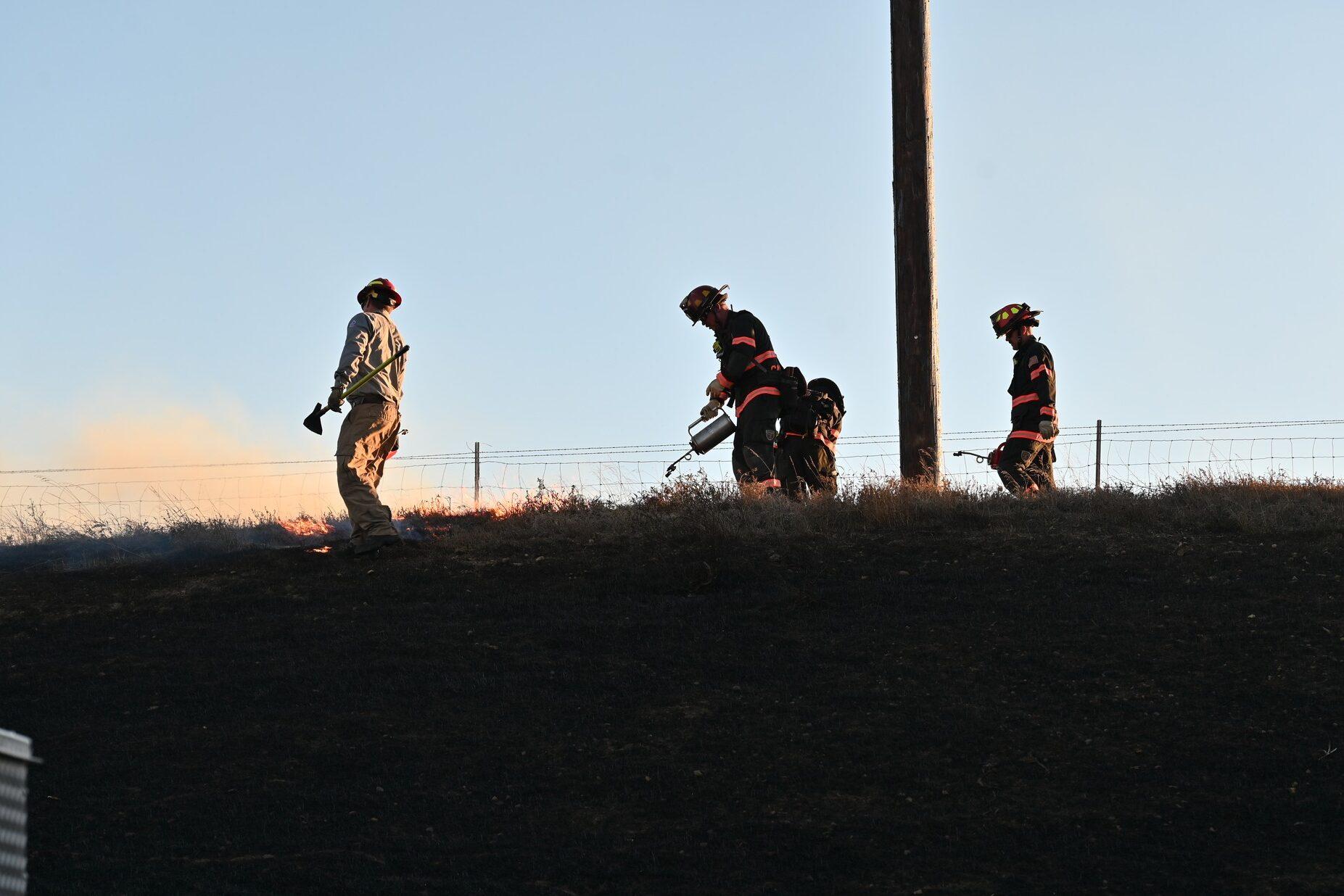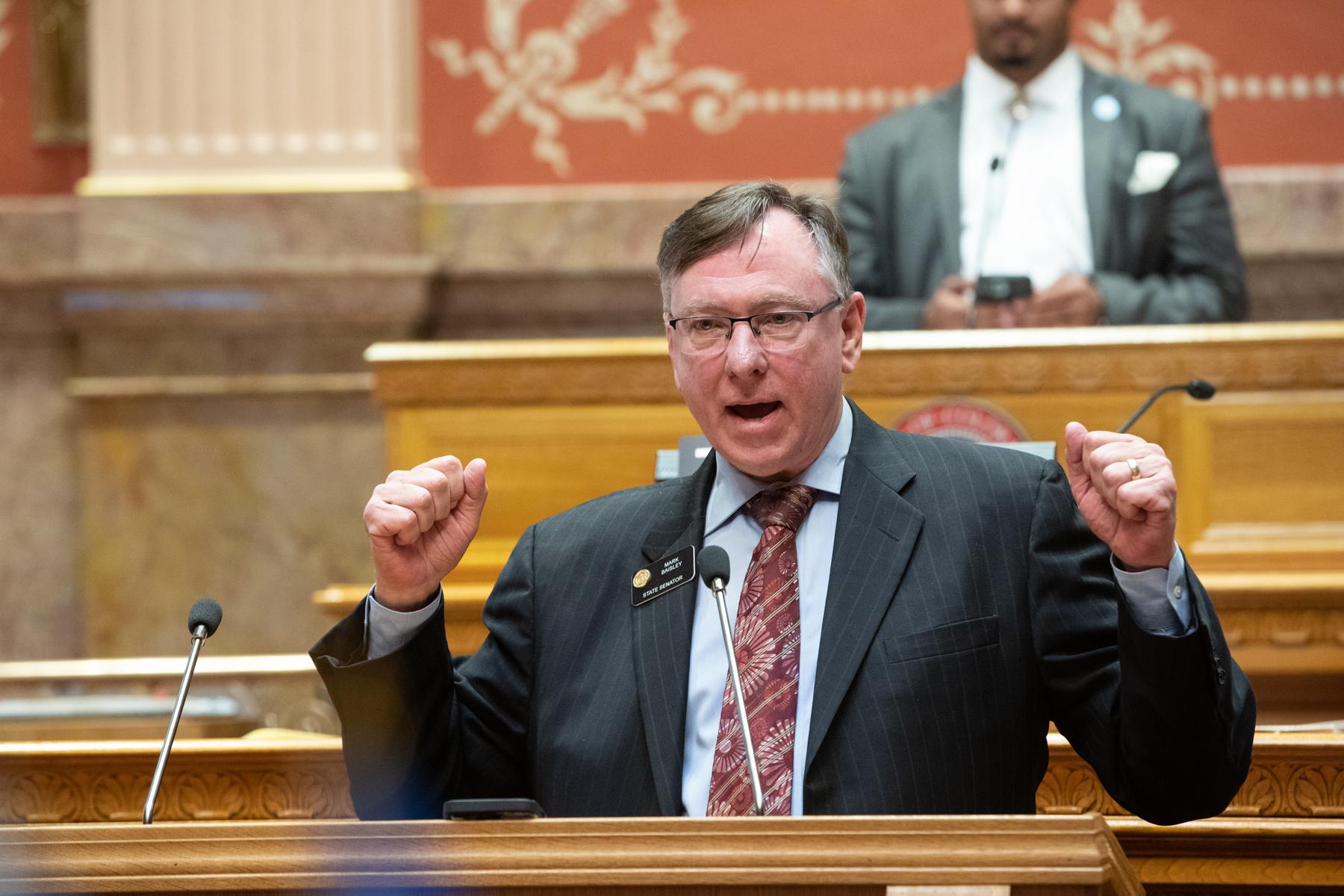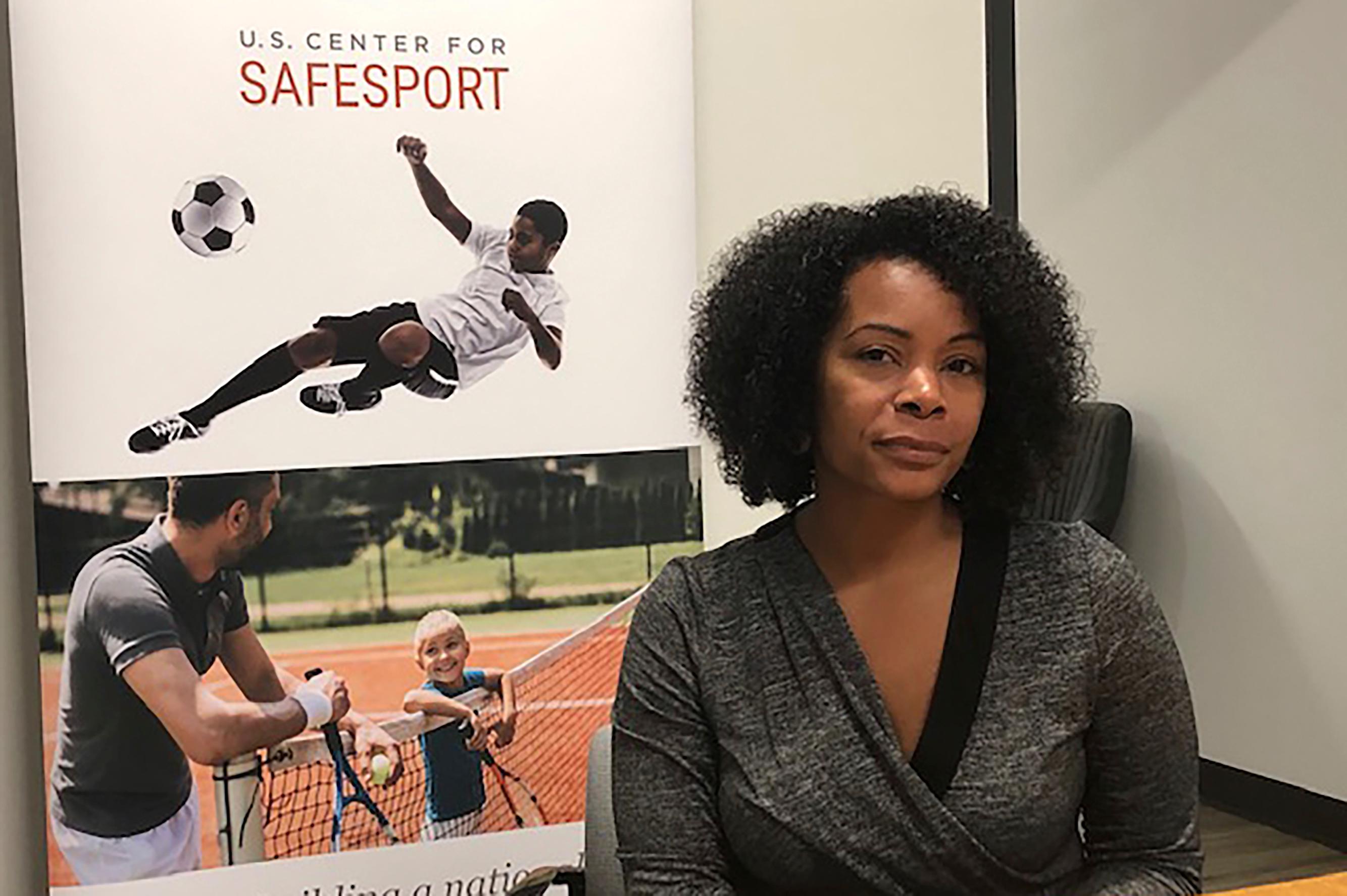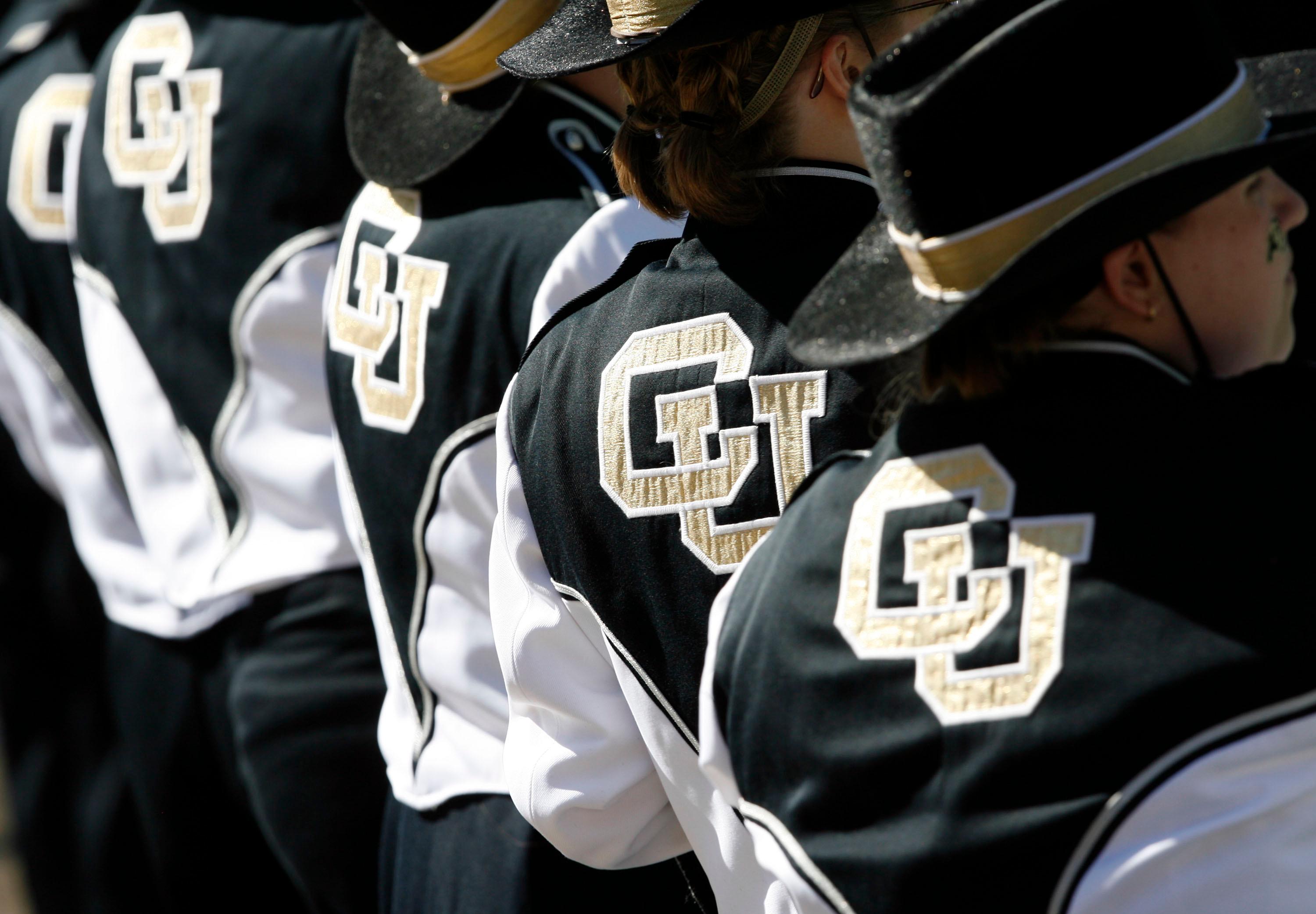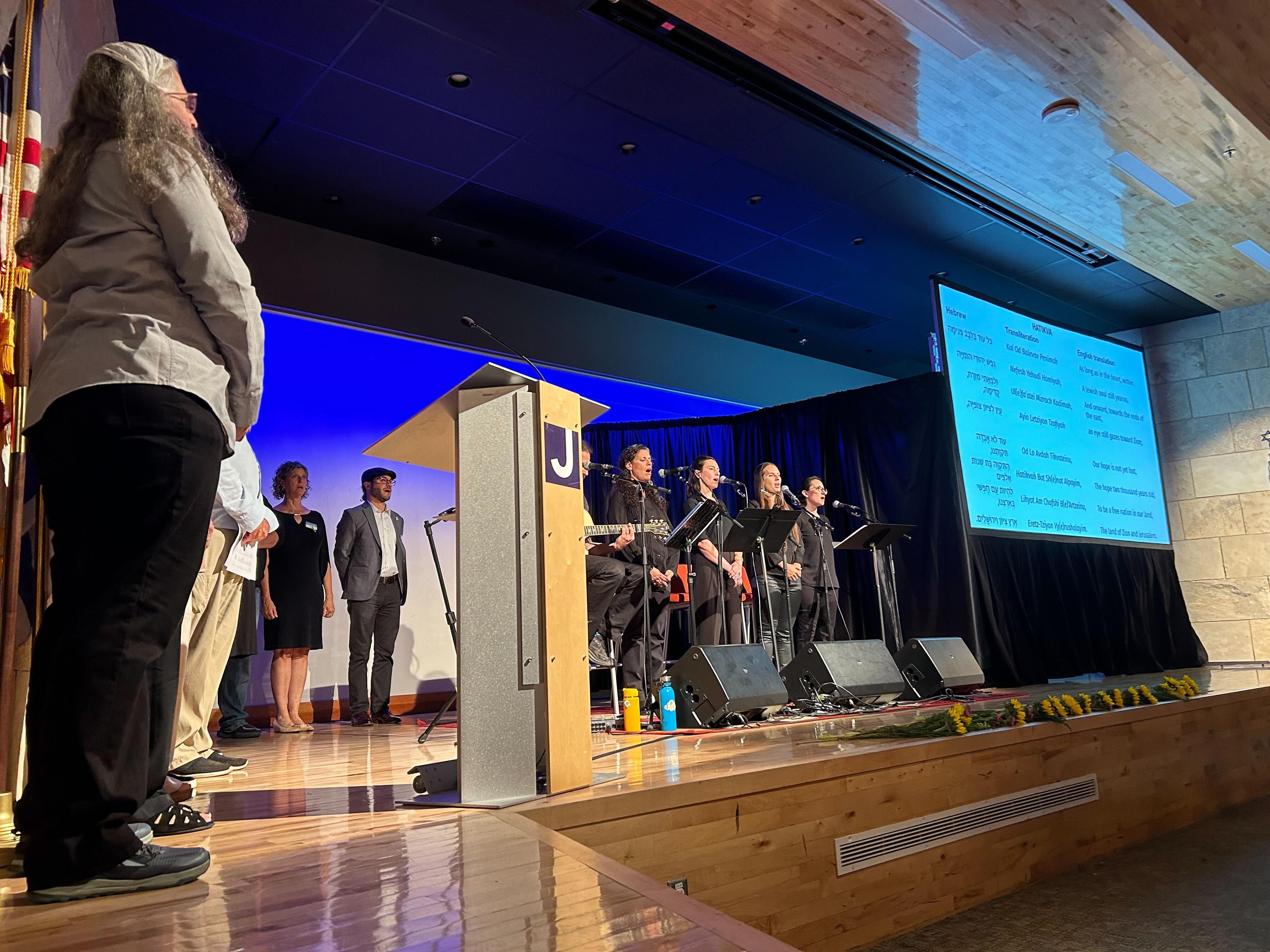
In the largest room at the Boulder Jewish Community Center (JCC), more than 550 people gathered together to sing, pray, mourn, and connect on Monday night as they marked one year since Hamas attacked Israel on Oct. 7, 2023. Community members held hands and passed Kleenex boxes down the packed aisles as they listened to songs and stories of loved ones who passed away last year.
“I could easily have just been in mourning at home with my family, I could have lit a candle,” Yoav Lurie told CPR News. “But in a moment like this, it's critical to be together as a community with other people and have this concept of shared pain… And it's an opportunity to listen to other people's pain and their experience of it and to be here for them and to be here together.”
The vigil was just one of many in Jewish community centers and synagogues around the state, from Aspen to Boulder, Monday.
“Gathering is really important,” Jonathan Lev, the Executive Director of the Boulder JCC, said. “Having a voice, having a connection, and being able to listen are all part of it for people. And tonight is an opportunity to do all that while being in the comfort of community, a community mourning, a community grieving.”
“There's anger that's present, but there's also hope,” he said.
Brandon Rattiner, the director of the Jewish Community Relations Council at JewishColorado, said the entire Jewish community was in mourning. The attacks on Oct. 7 killed more Jews — an estimated 1,200 people — than in any one day since the Holocaust, including one of Rattiner’s friends.
“I knew somebody that worked at a Jewish summer camp in Colorado that was at the Nova Music Festival and was killed,” Rattiner said. “So it's a personal tragedy for so many people here in the Colorado Jewish community and it is part of Jewish tradition to mourn in a community — that's like a fundamental tenet of Jewish wisdom.”
In addition to hundreds of residents and community members in attendance, a handful of elected officials — including Senator Steve Fenberg, Congressman Joe Neguse, and Boulder city council member Tara Winer — were in attendance.
“I wanted to be here to stand in solidarity with the Jewish community here.. to join with members of our community as we mourn and remember the lives lost on October 7th last year,” Neguse said. “And to continue to show the community and ultimately the people of Israel that we stand in solidarity with them on this very solemn day.”
Sen. Fenberg and Councilwoman Winer are both Jewish and have attended the Boulder JCC for classes and other community events.
“I'm here to represent my ancestors. I'm here to represent my community,” Fenberg said. “I'm also here as an elected official who was elected and currently represents the vast majority of the people probably in this room tonight. I think it's very important that elected officials show up and are part of the community.”
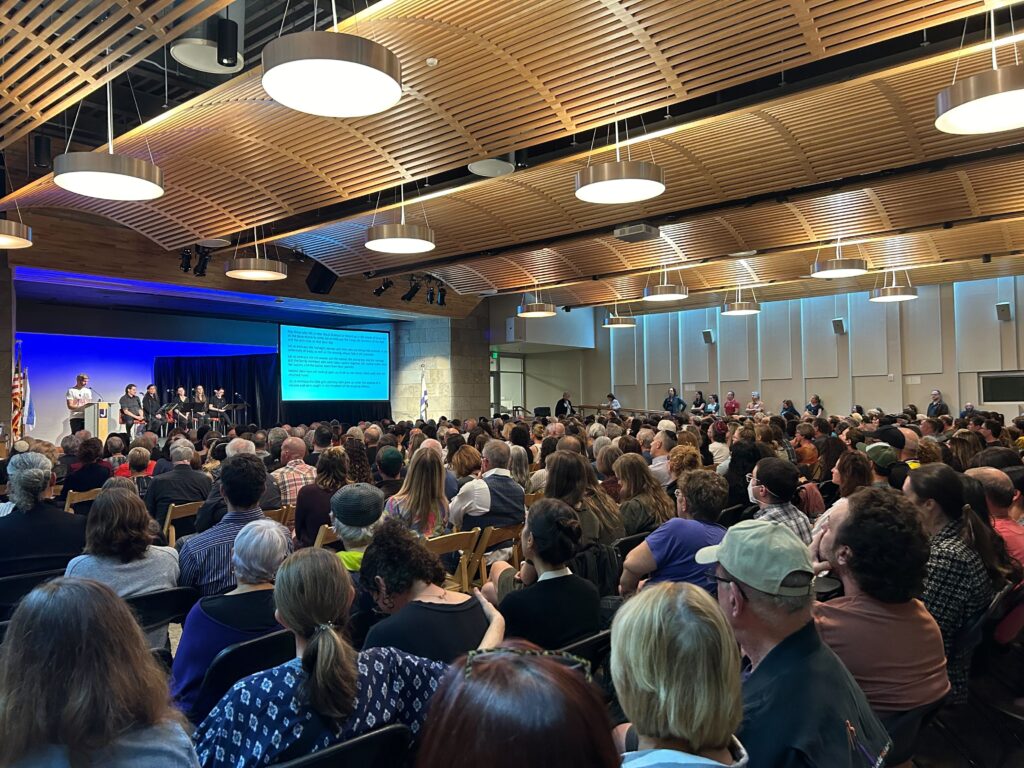
Rattiner said anti-Semitism around the state has drastically increased since last year’s attack. Jewish organizations around Colorado have “exponentially” increased their security — something JewishColorado provides to more than 115 Jewish facilities and organizations statewide, free of cost.
“I'm actually seeing a lot more people that just don't want to admit that they're Jewish and hiding their Judaism because they don't feel safe,” Rabbi Jamie Korngold said. According to Rabbi Korngold, she “works with people who are a little bit more on the fringe of the Jewish community,” and therefore, she says, are more fearful to admit or show their Judaism.
Meanwhile, pro-Palestine protesters have been holding demonstrations around the state, also marking one year since the attack, something that Rattiner says feels inappropriate.
“I would just point out to those protestors what actually happened a year ago,” he said. “If you are putting that experience in your narrative of resistance, I would ask them to really look in the mirror and take stock of whether or not they're championing the values that they purport to champion.”
Some argue that the Jewish community is not the target of their demonstrations. They say the U.S. and Israeli governments are the focus due to the ongoing war. The United Nations estimates that more than 41,000 Palestinians have been killed over the last year with another 96,000 injured.
“Criticizing government and elected officials is a core tenant to democracy and having a function in society. It should be encouraged because it is how we often can spark more meaningful conversations,” Fenberg said. “The problem is when it turns from a discussion around human rights and incredibly important issues, and it bleeds into this space that feels like it is actually just creating more unnecessary suffering and targeting of individuals who are already in a world of pain.”
“You can be a proud Jew and also believe that there should be a ceasefire and that the fighting should stop and also not want to associate yourself with what I sometimes refer to as team ceasefire. It's much more complex than two sides,” he said. “We need to stop being tribal, and we need to just be in community and dialogue about this complex issue.”
Rattiner called the protests antisemitic.
“If the Jewish community is telling you consistently and loudly and compassionately that your actions are anti-Semitic and are making us feel less safe and less welcomed, you don't get to say, ‘No, they don't,’” he said.

